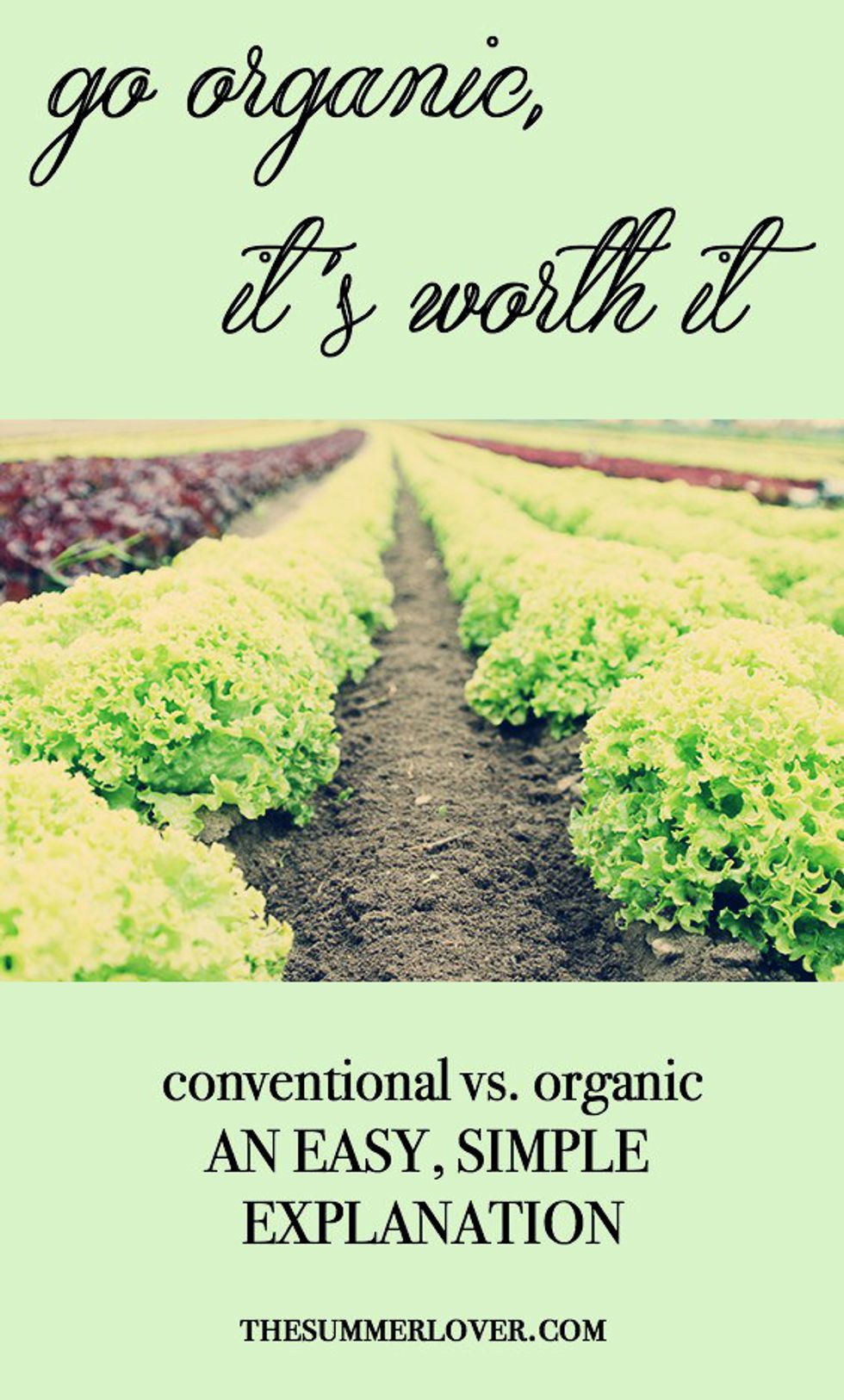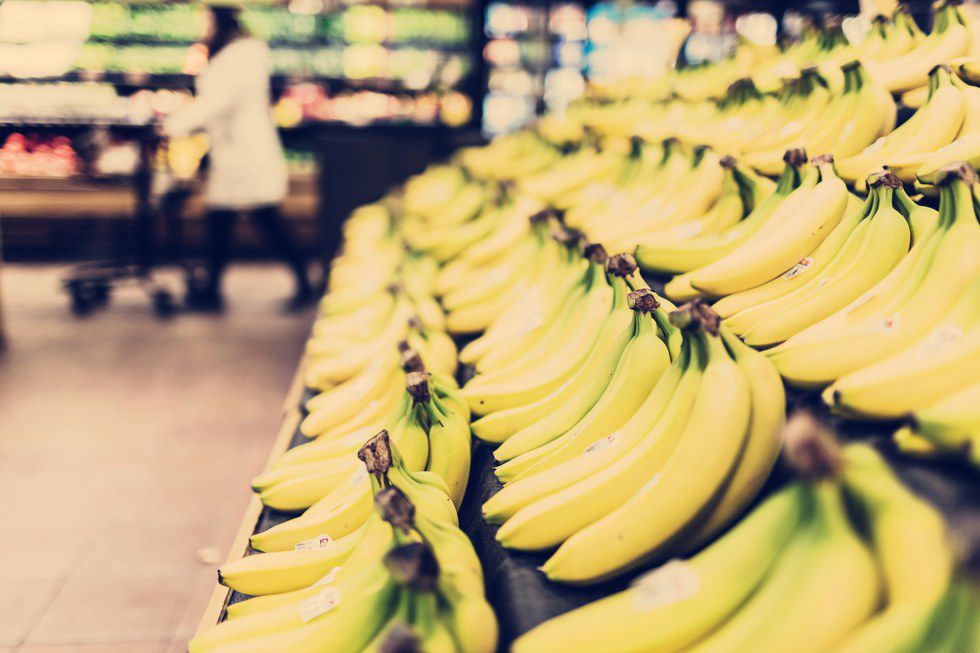At first glance, organic foods merely look like fancy, pre-packaged fruits and vegetables. To match their look, they also cost nearbly double the amount even though they're the same exact thing.
In reality, they're completely different!
A lot of people view organic foods as a marketing ploy because they don't see any external differences. It's hard to judge because it's impossible to know for sure what's actually done with the food during the long, long process before it's set on the table looking nice and pretty.
CONVENTIONAL VS. ORGANIC
| Conventional Farming Methods | Organic Farming Methods |
|---|---|
| Chemical fertilizers are used to speed up growth. | Natural fertilizers (manure, compost, etc.) are used to feed soil and plants. |
| To reduce pests and diseases, insecticides are sprayed. | Using insects, birds, traps, or mating disruptions to reduce pests and diseases. |
| To manage weeds, herbicides are used. | Using methods like rotating crops, tilling, and hand-weeding or mulch to deal with weeds. |
| Animals are given medications, growth hormones, and antibiotics to prevent diseases and speed up growth. | Giving animals organic feed (you are what you eat!) and taking preventative measures like clean living spaces, rotational grazing, and access outside. |
Are you noticing the pattern here?
Basically, it's all in the farming process.
Just like how highly processed foods “cheat” and use chemical fillers to enhance flavors and increase shelf-life, conventional farming methods take the easy road – all to maximize profit and efficiency.
So what you’re paying for, really, is for the farmers to practice more natural, smart methods to grow your food, rather than paying the minimum for food that’s ridden with chemicals.
The end results of both methods are exactly the same: yummy food on a platter.
But how they got there? Totally, 100 percent, mind-blowingly different.
In this case, the saying “you get what you pay for” very much applies.
So, is it worth it to pay for that more expensive bag of organic spinach?
Is it worth it to pay for a healthier, better you?
You decide.
This article was adapted from the wellness and balancing lifestyle blog, The Summer Lover. View the original post here.










 The minimum wage is not a living wage.
StableDiffusion
The minimum wage is not a living wage.
StableDiffusion
 influential nations
StableDiffusion
influential nations
StableDiffusion












